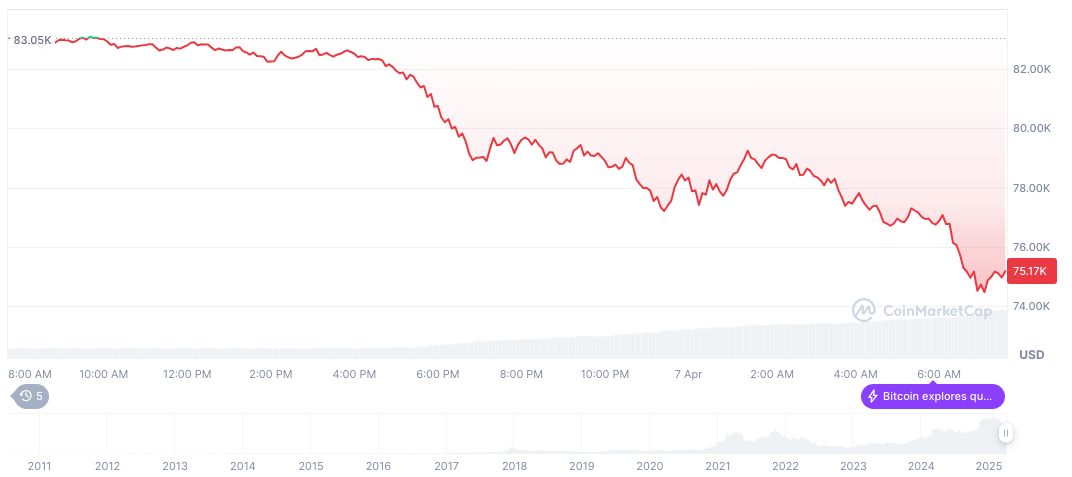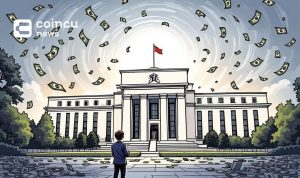- Larry Fink forecasts economic slowdown and inflation rise.
- Bitcoin suggested as dollar devaluation hedge.
- Concerns over tariffs impacting inflation and economy.
During an interview with Bloomberg on April 8th, BlackRock CEO Larry Fink predicted an economic slowdown, emphasizing concerns about inflation and recession amid tariff proposals.
Fink’s warnings highlight challenges facing global markets, where ongoing trade tensions could exacerbate economic conditions and impact inflation.
BlackRock CEO Predicts Recession and Inflation Risk
Larry Fink’s Bloomberg interview sheds light on economic forecasts, revealing concerns about a slowing economy and inflationary pressures. BlackRock’s CEO suggested that heightened tariffs could potentially lead to further inflations. Fink noted, “We are likely already in a recession,” reflecting executive consensus.
The potential impact on inflation is tied closely to tariff implementation, with Fink particularly highlighting issues in the auto sector and other areas of trade. These sectors face immediate pressures due to proposed economic measures, which could lead to a deeper financial impact.
“Full implementation of proposed tariffs could exacerbate inflation,” citing auto sector tariffs (25%) and broader trade tensions as immediate pressures: TheStreet
Market reactions to Fink’s statements have so far included heightened concerns about the global trade environment, as evident from conversations among industry experts. J.P. Morgan has adjusted its recession probability, reflecting a cautious market sentiment toward tariff-driven conditions.
Bitcoin’s Role in Economic Uncertainties
Did you know? In past economic cycles, Bitcoin has emerged as a hedge during times of currency devaluation, benefiting from low correlation with traditional bonds, as emphasized by BlackRock.
CoinMarketCap data on April 7, 2025, indicates Bitcoin’s current price at $77,830.88, with a market cap of $1.54 trillion and a market dominance of 62.54%. Trading volume surged by 587.37%, while Bitcoin experienced price declines over the past 90 days by 20.19%.

Coincu’s research team suggests potential regulatory adjustments may result from prolonged trade tensions and economic upheaval. They explore the technological implications of shifting market interest towards cryptocurrencies, emphasizing attention to evolving regulatory landscapes in response to Bitcoin’s growing role.























